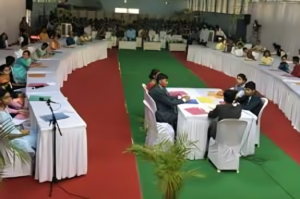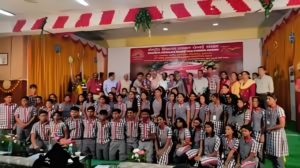Students from Kendriya Vidyalayas Deepen Their Civic Learning During Parliament Monsoon Session
Introduction
A group of bright students from Kendriya Vidyalayas across India got a first‑hand view of democracy in action during the Monsoon Session of Parliament. They watched debates, asked questions to their teachers, and felt the weight of history in the galleries. This unique visit blended textbook lessons with real‑world experiences. It showed how classrooms can stretch beyond walls and let young minds explore the heart of our nation’s governance.

Learning Beyond the Classroom
In many schools, civic education stays on paper. Here, students saw laws being shaped and witnessed discussions on issues like education reform and climate change. They learned:
- How a bill becomes law, from introduction to voting.
- The roles of Lok Sabha and Rajya Sabha members.
- Importance of decorum, discipline, and respectful debate.
The visit also helped teachers:
- Tie lessons on the Constitution to real examples.
- Show how citizens voice concerns through representatives.
- Inspire students to follow current affairs with enthusiasm.
Real‑Life Engagement
One student, Anjali from Kendriya Vidyalaya No. 2 Delhi Cantt, shared how she felt when MPs spoke passionately about child education. “I saw how people work hard for our future,” she said. This storytelling element brought dry facts to life and gave peers a concrete example of why active citizenship matters.
Another group from KV No. 1 Mumbai got to compare questions raised in Parliament to their own school debates. They noted:
- Similar structure: question, reply, follow‑up.
- Need for clear language to persuade listeners.
- How body language and tone affect impact.
These real‑life comparisons made lessons stick and showed students that they, too, can learn to speak confidently in public.
Building Civic Confidence
Visits like this boost students’ confidence. They realize:
- Their voice matters, whether in class or national forums.
- Knowledge of history, law, and current events gives them power.
- Future paths—law, journalism, public service—open when they engage early.
Teachers reported that class discussions after the visit were livelier. Students debated on topics like digital privacy and rural development. This spark in participation shows that immersive experiences can transform passive learning into active curiosity.

Practical Tips for Schools
Other schools can replicate this success by:
- Coordinating with local MPs or Rajya Sabha members for gallery passes.
- Preparing students with mock debates to understand procedure.
- Debriefing with reflection essays or group presentations.
Simple steps ensure a smooth visit and maximum learning:
- Submit permission forms well in advance.
- Hold a pre‑visit workshop on rules and etiquette.
- Assign buddies or small groups to watch specific debates.
Conclusion
The Kendriya Vidyalaya students’ Parliament visit during the Monsoon Session shows the power of experiential learning. By stepping into the heart of India’s democracy, young learners connected theory to practice, found their civic voices, and returned inspired. Schools nationwide can adopt similar visits to make lessons memorable, engaging, and truly student‑first. After all, understanding democracy is not just about books—it’s about seeing it in motion.
#TRANDING
#TRANDINGNEWS